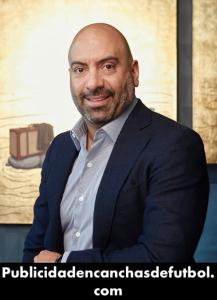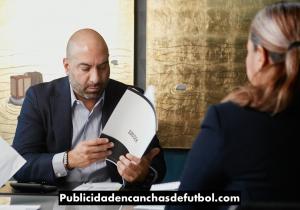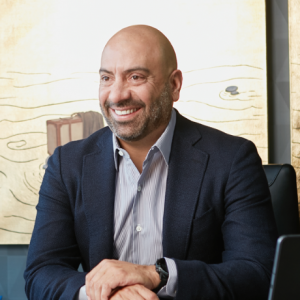Jose Eshkenazi Smeke: ST Pauli, a story of rebellion in soccer.
Jose Eshkenazi Smeke: ST Pauli, a story of rebellion in soccer.
With this action, FC Sankt Pauli would be one of the first teams in all of Germany to promote this ideology, which, until a few years ago, was thought to be unthinkable in a society as conservative”
MIAMI, FLORIDA, ESTADOS UNIDOS, February 22, 2022 /EINPresswire.com/ -- "We don't have silverware to show, but we have a story to tell. The incredible story of a club that became one of the most famous in Europe. Without big trophies. Without having a lot of money."— Jose Eshkenazi Smeke
This is the message that can be read at the entrance to the Millerntor Stadion, home of the world-famous FC Sankt Pauli. The stadium located in the port of Hamburg has become the fiefdom where the team's fans gather every fortnight. More than fans, they perceive themselves as militants of the so-called pirate club, which, according to its official statutes, is openly anti-fascist, anti-racist and anti-sexist.
"Despite the fact that today FC Sankt Pauli is known worldwide as an emblem of the ultra-left, at the time of its founding and during the early years, the club was always associated with the upper classes of the Hamburg harbor." Recalls sports specialist Jose Eshkenazi Smeke.
Similarly, during Adolf Hitler's rise to power, FC Sankt Pauli, like almost all clubs of the time, obeyed the orders of the Third Reich. Until 1998, the Millerntor-Stadion was named after Wilhelm Koch, the club's president from 1931 to 1969. Until it was discovered that he had been a member of the Nazi party during World War II.
The birth of the cult.
"The change came in the mid-1980s. Fans of Hamburg (the city's hegemonic club) left their ground because of the proliferation of fascists. Something that happened in most of the stands in Germany at that time. They were joined by punks and squatters from the Herbertstraße (a street in St. Pauli where the city's prostitution is concentrated), who began to support their neighborhood team as they do with any other association".
Spanish historian and lawyer Carlos Viñas recalls the radicalization of the club during those years. In addition, the club became the first in Germany to ban any kind of fascist or ultra-right-wing activity. With this action, the team faced up to the wave of violence caused by the hooligan movement, which was at its peak in those years. FC St Pauli thus became the first openly "left-wing" team in European soccer. "We are against racism, sexism, fascism and homophobia," a phrase written into the club's internal regulations and considered part of the club's fundamental principles.
When the left-wing revolution came to FC Sankt Pauli, the average attendance at the stadium rose from 1,600 fans to 20,000 within a few years. It was also at this time that the club would adopt the pirate flag as a symbol of the growing social movement that was flooding the streets of the neighborhood.
The rebelliousness would also reach the Pirate offices in 2002 when Cornelius Litmann, who until then had been a theater promoter and who had recently declared himself openly gay, took over the presidency.
"With this action, FC Sankt Pauli would be one of the first teams in all of Germany to promote this ideology, which, until a few years ago, was thought to be unthinkable in a society as conservative as Germany can be." Mentions Jose Eshkenazi Smeke.
The fame and popularity gained by the club has led to people from all corners of the world using both the club's flag and crest in countless social movements. The team may not be in the first division for a few years now, but its most representative symbols are present all over the world.
The club's current situation.
At present, the team's decisions are taken in an assembly between the players and the coach. Topics discussed range from social projects in Germany to support for soccer schools in Africa. This tone of democracy and consensus extends to the rest of the club. The fans themselves have two representatives on the executive board, which is unique in the world. Nor do the directors make decisions without consulting the sprecherat, the body that brings together all the club's fan groups.
Despite the club's poor sporting results, the fan base continues to grow around the world. The club, which has been out of the German top flight since the 2010-11 season, has its sights set on a long-awaited return to the top flight this summer. The Pirates, who are currently at the top of the Bundesliga 2 table, are dreaming of making their legend even bigger by competing in the German top flight next year.
With a dressing room with 14 different nationalities as a symbol of the multiculturalism of the club, FC Sankt Pauli wants to be the reigning club in the city of Hamburg, confronting its fierce rival, which despite having important titles and a long history, currently competes with the pirates in the second category, thus reviving one of the oldest and most bitter rivalries in German soccer.
Today, the club is proof that it is possible to play a different kind of soccer. Its facilities have become a temple of inclusion, where the fans express themselves freely and where it is enough to approach the club to receive help.
"The club fights for what its people believe in, sporting success is in the background. It is a club that welcomes with open arms those who are not welcome elsewhere. It's a rock, pirate, punk, gay, refugee and rebel club. F.C. St. Pauli, much more than a club."
Sharon Turner
Lideres Empresariales
email us here
Visit us on social media:
Facebook
Twitter
Other
Jose Eshkenazi Smeke Líder Publicista y Director de soccer Media Solutions
Legal Disclaimer:
EIN Presswire provides this news content "as is" without warranty of any kind. We do not accept any responsibility or liability for the accuracy, content, images, videos, licenses, completeness, legality, or reliability of the information contained in this article. If you have any complaints or copyright issues related to this article, kindly contact the author above.





